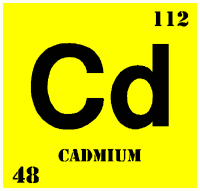On the option of being anonymous
Fancy algorithms and cool technology make true anonymity in mediated environments more possible today than ever before. At the same time this combo makes true anonymity in physical life much harder. We have caller ID, but also caller ID Block, and then caller ID-only filters. Coming up: biometric monitoring and little place to hide. A world where everything about a person can be found and archived is a world with no privacy, and therefore many technologists are eager to maintain the option of easy anonymity as a refuge for the private.
However in every system that I have seen where anonymity becomes common, the system fails. Communities infected with anonymity will either collapse, or shift the anonymous to pseudo-anonymous, as in eBay, where you have a traceable identity behind an invented nickname. Or voting, where you can authenticate an identity without tagging it to a vote.

Anonymity is like a rare earth metal. These rare elements are an absolutely necessary ingredient in keeping a cell alive, but the amount needed is a mere hard-to-measure trace. In larger does these heavy metals are some of the most toxic substances known to a life. They kill. Take cadmium. Essential for life in very minute amounts; toxic in any significant amount.
Anonymity is the same. As a trace element in vanishing small doses, it’s good for the system by enabling the occasional whistleblower, confessional, or persecuted dissent in a tyrannical regime. But if anonymity is present in any significant quantity, it will poison the system, even a half-rotten system.
I believe anonymity is essential. It is vital to a healthy society and market. Without the option of anonymity I believe a society would be less than optimal. Indeed I would fight vigorously to keep the option of being anonymous as an essential part of any society. It is both humane and wise.
At the same time I think there can be too much anonymity at work. When it becomes a default option it poisons the community — like a rare-earth metal. My argument is not against anonymity but against too much of it.
What do I mean by anonymity? An untraceable, unaccountable, undistinguishable agent. Someone who engages in an activity cloaked in the identity of the tag “anonymous.” I do not mean a vegetable vendor in a market whose name you do not know, because that person is both distinguishable and potentially traceable. I mean people who post using anonymous as a habit.
Posting anonymously is fine as long as the overall incidents of it remain small in the larger system. But each incident of anonymity depletes commons. Everyone should have the right to being anon, but if everyone exercises that right the commons is diminished.
There’s a dangerous idea circulating that the option of anonymity should exercised liberally, and that it is an ordinary means to privacy. This is like pumping up the levels of heavy metals in your body into to make it stronger.
Privacy can only be won by trust, and trust requires persistent identity, if only pseudo-anonymously. In the end, the more trust, the better.
Regulation – that is banning anonymous actions – won’t work for many reasons. I think a better remedy for a balance between too much anonymity and not enough options for it, is a cultural ethic that declares that anonymity should be kept to a minimum because it is a claim against the commons. We all have a right to the commons, but we all have an obligation to minimize the exercise of those rights.
I believe a healthy society keeps anonymity as close to zero as possible. We should encourage people to stand up for their words and reserve anonymity for the rare times when it is essential.


